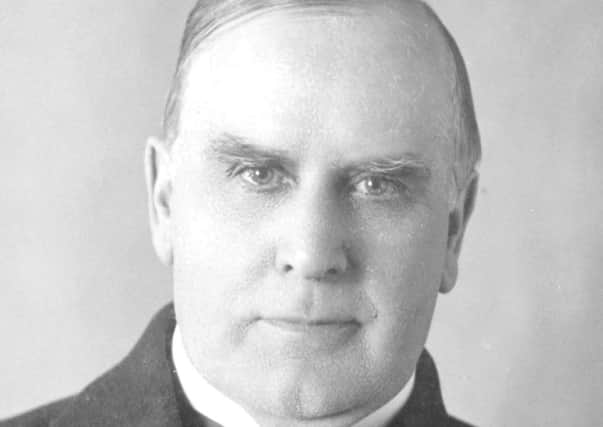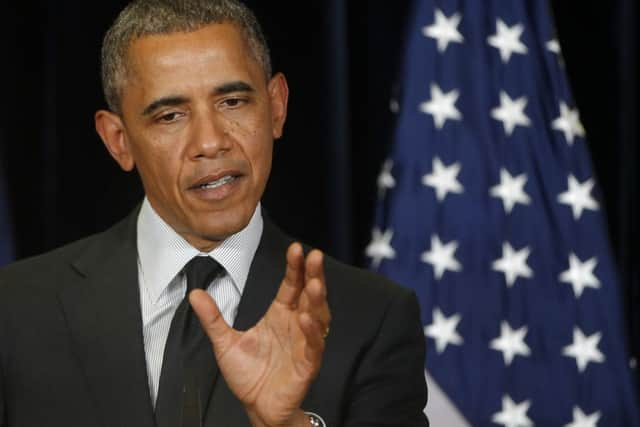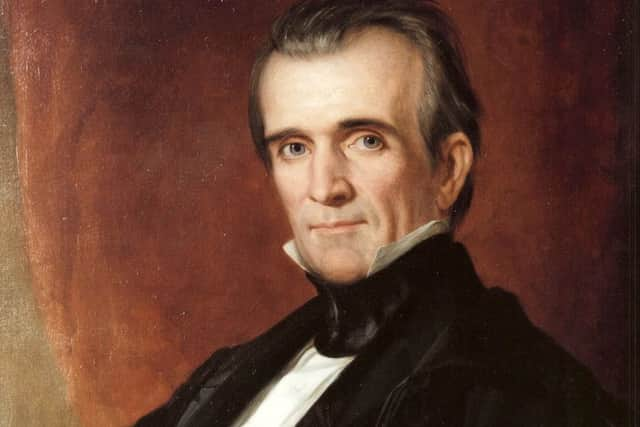The US presidents with the strongest Scottish roots


While 33 US Presidents have had ancestral links to Scotland, many of these men have heritage that is classified as Ulster-Scots.
This ethnic group has historically been found in the Ulster region of Ireland, and is so-called because of their own historical links to the lowlands of Scotland, where the group’s ancestors originated.
Advertisement
Hide AdAdvertisement
Hide AdThere are other presidents that can claim Ulster-Scots heritage through their grandparents or great-grandparents, such as Ronald Reagan, Bill Clinton and even George Washington - further underlining the importance of both Scotland and Ireland’s influence upon the world.


We look at three of the 33 Scots-Irish Commanders-in-Chief with the strongest Scottish roots.
JAMES KNOX POLK (1845-49)
Polk, a Democrat who was the 11th President of the United States, was born in North Carolina in 1795. The state was the settling place of his Scottish great-grandfather, Robert Bruce Pollok, who arrived in the American colonies from Ireland in or around 1680. The Pollok family changed their name to Polk after settling, and the president served seven terms in the US Congress and was awarded the role of Speaker of the House during his political career.
WILLIAM MCKINLEY (1897-1901)


McKinley’s Methodist roots stem from Perthshire, where his great-grandparents were born as Presbyterians. The Republican president’s grandparents were even involved in the American Revolutionary War, with McKinley the 25th man to hold the office of President. In 1901, he was assassinated anarchist Leon Czolgosz in Buffalo, New York, and was known throughout his career for promoting the causes of Scots-Irish immigrants.
WOODROW WILSON (1913-21)
Wilson’s Scottish origins were provided by his great-grandfather the Rev Thomas Ruggles from Paisley. Like Polk, Wilson’s grandparents emigrated from Scotland via Ireland to the USA in the early 19th century. To this day, Wilson is perhaps best known for negotiating the end of the First World War along with the leaders of other Allied nations. Legend has it that he was proud of his “Scottish conscience” and his firm Calvinist beliefs.


Unexpected links
While the above three presidents exhibited clear Scottish historical roots, the current Democrat president Barack Obama has Scottish ancestry that far predates his Hawaiian birth..albeit with a somewhat tenuous link.
According to a theory publicised on the official Scotland.org website, the first African-American President of the United States has ancestry which can be traced back to William the Lion, who ruled Scotland for 49 years between 1165 and 1214.
Advertisement
Hide AdAdvertisement
Hide AdIn addition, the familiar white-bearded face of ‘Uncle Sam’ seen on military recruitment posters of old is said to be based on that of Greenock-born Sam Wilson. The New York food purveyor supplied the US Army with food during the early 19th century, and the rumour goes that the ‘U.S.’ markings on food packages were a tongue-in-cheek reference to the military’s benefactor instead of the United States itself.
